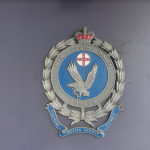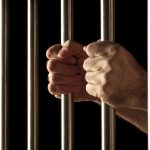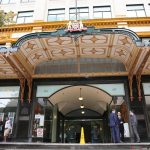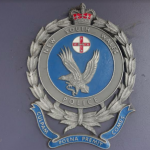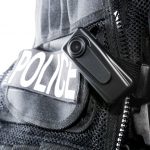Court Security Screening of Lawyers is Unwarranted
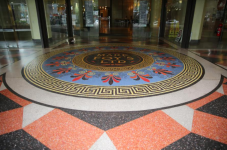
In late February, NSW Bar Association president Arthur Moses SC called a meeting with the head of the Office of the Sheriff of New South Wales, Tracey Hall, to discuss the ongoing frustrations of lawyers who are subjected to time-consuming queuing and security screening as they enter NSW courthouses.
Of late, a number of barristers at Parramatta Court and Sydney’s Downing Centre and John Maddison Tower have made complaints about the practice of security checking lawyers, in the same way that the accused, the general public and the media are screened.
At each court attendance, lawyers are left standing in slow-moving queues often behind large groups of students and other visitors, as they watch police officers and police prosecutors – their adversaries – waltz past the line and straight through security, without being checked or even having to surrender their weapons. And by the time they are on the other side, lawyers have wasted valuable time that their clients are often having to pay for.
Where, as is often the case, lawyers need to attend more than one courthouse in a day, they may be checked multiple times, and the time-consuming process can cause issues regarding arrival times and the efficiency of the court system.
As an unnamed barrister told the Sunday Telegraph recently, one barrister, who’s well-known to sheriffs at the court where he’s been working for eight years, was stopped while dressed in a wig and gown and asked to remove his shoes as if he posed a security threat.
And with police and prosecutors, including those from the RMS, simply being waved through security, barristers and solicitors are fed up with having to deal with this unwarranted delay in their own workplace.
The position of the Bar Association
Following the meeting, Mr Moses issued a statement explaining that he’d requested to see Ms Hall after receiving numerous complaints from members of the NSW Bar, which not only called out the delays, but also “the treatment of lawyers undertaking security screening.”
The result of the discussions, Mr Moses advised, was that a system will be implemented to address the concerns and complaints that are put forward by legal professionals. The Bar Association will be monitoring how this arrangement progresses.
“A fundamental concern of the Bar Association is to ensure that court proceedings are not adversely affected because of the extensive delays which practitioners are experiencing when entering certain buildings,” Mr Moses explained.
The Bar Association president further stressed that the practice is having an adverse effect on the public as it is wasting time and money. He outlined the Bar has no issues with security screening, but that it should be carried out in a “common sense and courteous manner.”
“After all, the courts are the workplaces of lawyers,” Mr Moses concluded.
Courthouse checks
Most NSW courts have airport-style security screening at the public entrance. Those entering are required to place their belongings on the baggage scanner, walk through a metal detector, and on occasion be scanned with a hand-held detector.
Security checks are carried out by NSW court sheriffs. The Court Security Act 2005 provides sheriffs with the power to ensure courthouse security. And sheriffs are defined as law enforcement officers under the terms of the Crimes Act 1900.
Section 8 of the Court Security Act makes it an offence for a person to be in possession of a restricted item on court premises. Restricted items include firearms, knives, and other prohibited weapons, such as bombs, spear guns and crossbows.
The maximum penalty for the offence is 2 years imprisonment and/or a fine of $11,000.
Courtrooms can be busy places, just like airports, and delays can be extensive for lawyers in busy courthouses.
Many feel it makes no sense for lawyers to be security checked each time they enter a courtroom, when police officers – who are not officers of the court and do not have the special ethical obligations towards the court imposed by Solicitors Rules and the like – walk right through.
No basis for requirement
It was a different story not so long ago. Lawyers were able to walk straight in to their place of work, without being treated like a security threat. Solicitors would simply show their Law Society of NSW card which bears their photo, while barristers would produce their NSW Bar Association identification.
And significantly, there was no security infringement incident that led to the requirement that lawyers be subjected to screening every time they enter a courthouse.
After years of attending university, undertaking a course in practical legal training, as well as carrying out training at a law firm, then being admitted as a lawyer of the Supreme Court of New South Wales, then passing a ‘fit and proper person’ test and ultimately obtaining a practising certificate, NSW legal professionals aren’t looking to carry out an attack at a courthouse, they’re merely trying to get to work and represent their clients.
Police armed in court
Since mid-2015, legal professionals have been suffering the affront of watching NSW police simply walk through security checks without even having to hand over their guns, which seems a little unjust as, again, courtrooms aren’t the workplace of police officers.
Back in 2014, officers were still required to surrender their guns when entering a courthouse. However, in September that year, the NSW Police Association began arguing that officers had a right to carry guns into courts for security purposes.
At the time, NSW Chief Magistrate Graeme Henson stressed that the same rules should apply to police as everyone else. While others questioned why an officer would need a gun in a courtroom full of unarmed people, when they’re already carrying a baton, pepper spray and handcuffs.
But, on August 4 2015, NSW police minister Troy Grant announced police would be able to wear their guns in court.
So the situation is that defence lawyers are not required to cross-examine police officers who are on the witness stand fully armed.
Why aren’t judicial officers speaking up?
One Sydney lawyer took the matter to the state’s Supreme Court last year. The lawyer argued that a sheriff at Parramatta Courthouse should not have required him to remove his belt before walking through the security checkpoint.
But the presiding judge ruled that the sheriff’s request was a reasonable one; which begs the question: why aren’t NSW judges and magistrates speaking out about this matter? Judicial officers are former lawyers, and many of them would remember the days when legal professionals weren’t subjected to this snail-paced process.
Indeed, perhaps it’s time for those on the Bench to speak out against a situation where there is a clear perception of bias, if not actual bias, towards the side of the prosecution.



